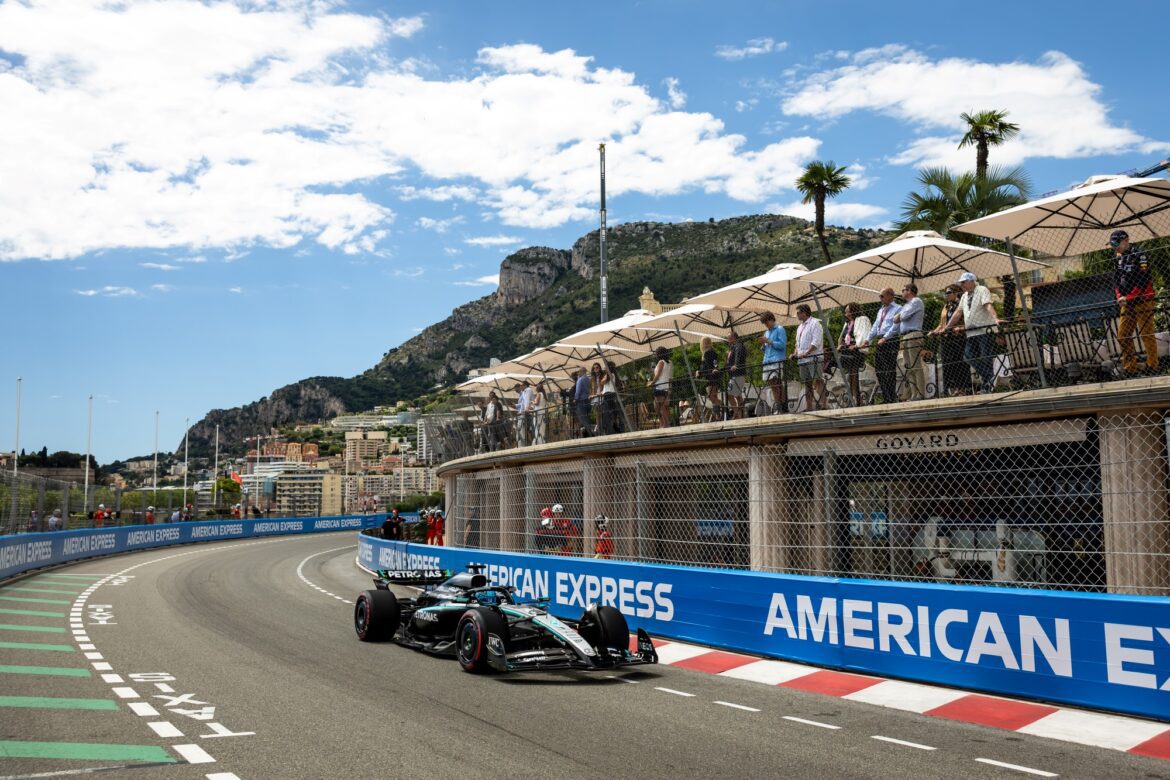George Russell’s Take on the Monaco Grand Prix: A Fresh Perspective on Strategy and Performance
The Monaco Grand Prix, a cornerstone event in the Formula 1 calendar, has always sparked discussions about its unique challenges and the strategic decisions that come into play. George Russell, a prominent figure in the racing world, has recently voiced his candid opinions regarding the latest edition of the race. He didn’t hold back when critiquing the event that took place over the weekend, particularly highlighting the implications of a new rule and its impact on racing dynamics.
In an effort to enhance the excitement and strategic depth of the 2025 Monaco Grand Prix, the Formula 1 governing body, alongside the FIA, introduced a mandatory two-stop rule for the race. This rule was designed to stimulate a more dynamic environment, encouraging teams to adopt varied strategies throughout the event. However, despite this attempt to shake things up, the reality of the race did not live up to expectations.
One of the notable issues that arose during the race was the limited number of overtakes. Teams resorted to internal strategies to manage their positions on the track. For instance, at Williams and Red Bull Racing, drivers were seen slowing down intentionally to hold back their rivals. This tactic allowed their teammates to build enough of a lead to pit without losing their position, showcasing an intriguing but somewhat controversial approach to race strategy.
Russell himself encountered a challenging situation as he found himself stuck behind Alexander Albon. In a moment of frustration, he attempted to overtake Albon by cutting the Nouvelle chicane. However, this maneuver resulted in a drive-through penalty, which, interestingly, did not seem to faze him significantly. “I was a bit surprised, but to be honest, I didn’t really care because I was out of the points,” Russell explained. His focus shifted away from the penalties and toward making the most of his experience on the iconic Monaco circuit.
Russell’s mindset during the race was clear: he wanted to enjoy the thrill of driving on one of the most prestigious tracks in the world, regardless of his standing in the race. “I thought, ‘Forget it, I just want to enjoy myself. I want to savor driving on this track and push to the max. It’s one of the coolest circuits in the world,’” he remarked.
As the race progressed, Russell found joy in the challenge, stating that the last 25 laps were the most exhilarating part of his weekend. “It was really exciting. I was pushing myself to the limit, testing my skills,” he noted. He reflected that if he had not taken the risks he did, he might have ended up finishing in a much lower position, potentially around 15th or 16th place. Instead, he chose to embrace the adrenaline and excitement that comes with racing at Monaco, a decision that resonated with fans and racing enthusiasts alike.
The Monaco Grand Prix has a storied history, often regarded as one of the most prestigious races in the Formula 1 calendar. Its narrow streets, challenging corners, and glamorous backdrop present a unique set of challenges that test the skills of even the most seasoned drivers. Each year, teams and drivers prepare meticulously for this event, knowing that the outcome can hinge on a multitude of factors, from car performance to strategic decision-making.
Incorporating new rules, such as the two-stop mandate, reflects the ongoing evolution of the sport as it seeks to balance tradition with the need for excitement and competition. However, the implementation of these rules requires careful consideration of how they affect race dynamics. This year’s event raised questions about whether the changes truly enhanced the racing experience or simply added another layer of complexity without delivering the anticipated thrills.
As Russell pointed out, the strategic maneuvers employed by teams during the race often overshadowed the intended excitement of overtaking opportunities. The tactical decisions made by teams like Williams and Red Bull showcased a different dimension of racing strategy, one that prioritizes team collaboration and position management over individual performance. This approach, while effective in some contexts, can lead to a more subdued racing atmosphere, as drivers become less willing to take risks when their teammates are involved.
Russell’s candid reflections serve as a reminder of the importance of balancing competitive strategy with the inherent thrill of racing. The Monaco Grand Prix is not just about finishing positions; it is also about the experience of competing on a world-famous track, pushing personal limits, and embracing the spirit of motorsport. His willingness to take risks and seek enjoyment in the face of adversity is a testament to his character as a driver.
In conclusion, George Russell’s perspective on the recent Monaco Grand Prix sheds light on the complexities of modern Formula 1 racing and the ongoing quest for excitement and strategy within the sport. As the governing bodies continue to evolve the rules and regulations, the voices of drivers like Russell will play a crucial role in shaping the future of racing. The balance between strategic depth and the raw thrill of competition remains a vital conversation in the world of Formula 1, one that will undoubtedly continue to evolve in the coming seasons.
